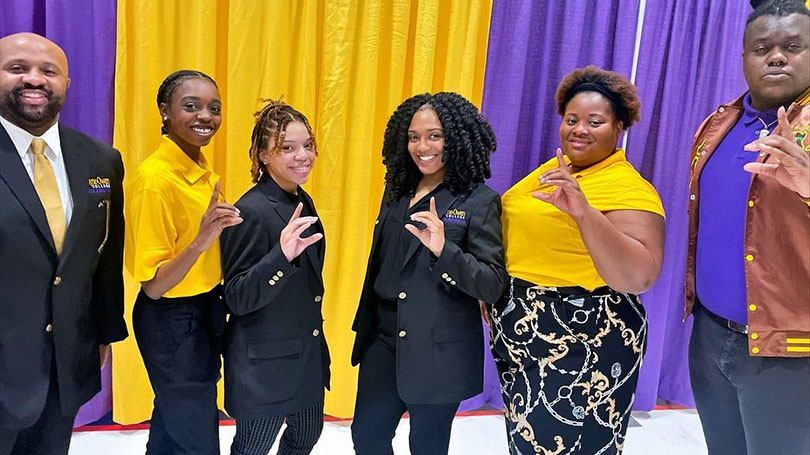
LeMoyne-Owen College students in Memphis
LeMoyne-Owen College
History
The saga of the conditions that led to the establishment of LeMoyne-Owen College trace back to 1862.
Prior to President Lincoln’s signing of the Emancipation Proclamation in January 1863, Lucinda Humphrey, a hospital nurse at Camp Shiloh, was one of the first to see the need to educate African Americans who had escaped to the Union camps.
So she held candlelit instructions for groups of Blacks to teach them the alphabet.
In 1863, the school was moved to Memphis but destroyed by race riots after the Federal troops withdrew in 1866. Lincoln Chapel, as the school was then known, was rebuilt and reopened in 1867 with 150 students and 6 teachers.
Later, Dr. Francis Julian LeMoyne, a life member of the American Missionary Association and a prominent physician of Washington, Pennsylvania, made a generous financial gift to the school.
The school was renamed in his honor as the LeMoyne Normal and Commercial School, acquired its present site in 1914, and was finally chartered by the State of Tennessee as a four-year degree-granting institution in 1934.
Owen College Owen College began in 1947 when the Tennessee Baptist Missionary and Educational Convention bought property on Vance Avenue to build a junior college.
Opening in 1954 and named in honor of the Reverend S. A. Owen, a prominent religious and civic leader, the school became Owen Junior College.
The two schools merged in 1968, forming LeMoyne-Owen College and reinforcing their shared purpose of combining a liberal arts education with career training in a Christian setting.
Academic Merit
LeMoyne-Owen College is accredited by the Commission on Colleges of the Southern Association of Colleges and Schools. The 4-year Liberal Arts College provides a liberal arts core curriculum that develops students’ important life skills and training in:
• Business and Economics
• Development
• Education
• Fine Arts and Humanities
• Natural & Mathematical Sciences
• Social and Behavioral Sciences
Center for African and African American Studies sponsors workshops, seminars, exhibitions, and lectures that explore issues and provide opportunities for students to interact with persons who represent diversity in cultural, social, professional, political, or national perspectives.
The Center’s activities are highlighted by the celebration of African-American History Month in February and the annual commemoration of the Middle Passage in September.
The Center is also a repository for books, artifacts, audio and visual tapes, and CDs on African and African-American studies.
Campus Life
LeMoyne-Owen College occupies a beautifully landscaped campus in South Memphis. Its diverse, multi-ethnic student body comes from around the United States and several foreign countries.
The principal buildings on campus include Brownlee Hall, the major administrative building; Steele Hall, the oldest building on campus housing faculty and administrative offices; C. Arthur Bruce Hall, housing the gymnasium, pool, and other physical education facilities; and the Alma C. Hanson Student Center, housing student lounges and recreation rooms, meeting rooms, dining hall, staff offices, the Little Theater and the College bookstore; and the Hollis F. Price Memorial Library.
There’s also The Gibson-Orgill Mathematics and Science Learning Center, Sweeney Hall, and the Center for African and African American Studies.
Campus visits should be scheduled at least two weeks in advance. They are offered Monday-Friday at 10 am and 2 pm.
ADDRESS: 807 Walker Avenue, Memphis, TN MAP
PHONE: 800-737-7778
WEBSITE: https://www.loc.edu
